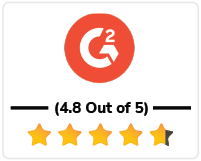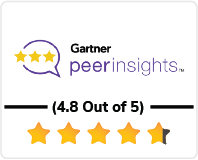
Views are flying (and positions forming, no pun intended) fast and furious about Valeant Pharmaceuticals, since the headline-grabbing short-sell report that was put out some weeks ago. The report alleged that Valeant was another Enron in the making; it had fudged its books through Philidor, a specialty pharma company where it had undisclosed interests and through which it had faked transactions to inflate revenues, and that Philidor in turn had built up a tangled web of entities that effectively obfuscated Valeant’s involvement and were used to defraud customers and insurance companies.
That was only the start of a spate of adverse news that has been battering the firm continuously since from an insider trading lawsuit, a class-action lawsuit, and news being played up around a clerical error that occurred two years ago and which, in theory at least, could have netted the CEO 27 million dollars.
While investigations will reveal the extent to which each of the accusations is true, and what part, if any, the Valeant management played in cooking its books, one thing is clear by the very act of being forced the way it has been into the painful glare of public attention, the future of the company has changed forever.
Valeant’s business model, which is well-publicized and was highly effective in the last five years was, simply put, to acquire companies that owned drugs that were priced low and had little competition, and overnight reprice these drugs to what the market could bear. Some by as much as 200 to 500%. This model of acquisition combined with drug price hikes was very successful, and Valeant was very profitable. The firm showed remarkable growth (combined with a remarkable appetite for acquisitions) between 2010 and 2015, and the stock did phenomenally well, attracting some very big, as well as a number of smaller investors.
While its business practice may not have made patients, insurance firms, or broader sections of society happy, it certainly knew how to keep its shareholders happy. And it didn’t seem like the firm was running a business that was illegal, immoral though it may have felt.
Ironically, on the face of it, the financial and legal irregularities that the short sell report referred to, and which triggered this entire furor around the stock in the marketplace may not actually be as calamitous as they were made out to be. At least, that is Valeant’s version of it.
In its Q3 2015 report, Valeant stated the Audit and Risk Committee and the full Board of Directors have reviewed the Company’s accounting for its Philidor arrangement and have confirmed the appropriateness of the related revenue recognition and accounting treatment. (Source: Pg 38 under Footnote 18. Subsequent Events of Form 10-Q3 for Period ended September 30, 2015, filed on SEC.)
It went on to elaborate Net sales recognized through Philidor represent approximately 7% and 6% of the Company’s total consolidated net revenue for the three-month and nine-month periods ended September 30, 2015, respectively, and the total assets of Philidor represent less than 1% of the Company’s total consolidated assets as of September 30, 2015. Since this is not significant the company has chosen not to disclose any specific details regarding Philidor in 10Kor 10Q reports prior to Q3 2015. (Source: Pg 13 under Footnote 3. Business Combination of Form 10-Q3 for Period ended September 30, 2015, filed on SEC.)
Finally, the firm also clarified its position around its revenue recognition policy – Gross product sales for products dispensed through Philidor Rx Services, LLC (Philidor) pharmacy network (which is consolidated as a variable interest entity within our consolidated financial statements) are recognized when a prescription is dispensed to a patient. Any inventory on hand in the Philidor pharmacy network is included in inventory in our consolidated balance sheet.(Source: Pg 42 under Item 2. Managements Discussion and Analysis of Financial Condition and Results of Operations of -Changes in revenue Form 10-Q3 for Period ended September 30, 2015, filed on SEC.)
Though all of this seems reasonable from an accounting policy perspective, these clarifications haven’t managed to cut ice with the markets.
Apart from the lawsuits the firm has to deal with, one of the possible reasons for such an extremely adverse market response, and an important part of the narrative in this unfolding drama, has to do not with the legality of accounting, but questions around the ethics of the business model that Valeant followed.
Ironically, the model of repricing drugs is not unique to Valeant. Valeant was just the one that seemed to be the most ruthlessly efficient at it. This probably hasn’t done the company any favors.
Irrespective of the results of the investigation, one outcome seems evident – Valeant will need to rethink its business model going forward, with its every move being scrutinized much more closely.
In hindsight, had the firm been in the clear around its disclosures, it may have helped to proactively disclose more information than was required by the law. This may have prevented the situation from getting such a high level of unwanted attention.
Perhaps this entire saga will accelerate the move by regulators to make disclosures around affiliate entities more stringent. SEC’s recent call for comments on Regulation S-X is possibly a step in this direction.
Irrespective of regulatory mandates, a takeaway from this entire saga, not just for Valeant, is that a greater level of voluntary disclosure could perhaps prevent what needlessly has to be cured later.





